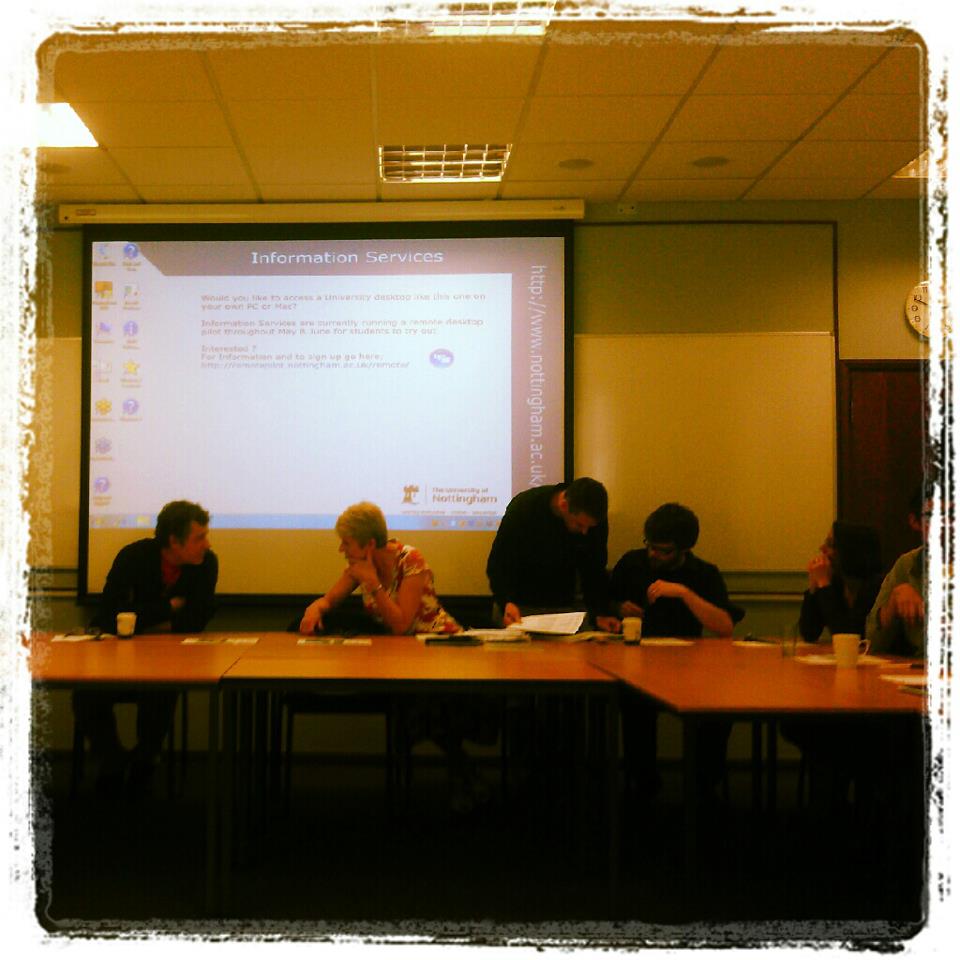
July 3, 2012, by Matt
A day in the life of a Geographer … Andy Cook
Well, since my last set of reflections things seem to have become even busier! Despite teaching having finished in May (generally speaking) staff have been busier than ever with marking, exam and coursework moderation, exam boards, curriculum reviews and generally reflecting on what has been a successful academic year. On a personal note I have first or second marked 15 final year dissertations on a variety of topics ranging from urban regeneration strategies via a study of gastro pubs in rural Gloucestershire to a piece exploring the economic survival strategies of non-league football clubs. Dissertation marking is one of the most rewarding parts of an Academic’s job as it is the one sustained piece of independent work of the degree programme that has a significant impact on the outcomes on the final degree result. Most of us learn a thing or two as well!
Following the completion of dissertation marking, exam season well and truly kicked in. As I teach on a number of major modules (Countries in Transition in the Qualifying Year; Economic Geography in Level 1 and History and Philosophy of Geography at Level 2 for those following at home) this amounted to some 341 essay responses to mark. These are then moderated by other members of staff to ensure that our marks are fair. Aside from pushing the price of red ink in an upwards direction throughout the East Midlands, it is interesting to note how, year on year, the same issues result in either very good marks or ones that are more disappointing. Much of the geography degree programme (BSc or BA) is driven by the need for students to engage with independent and self-directed learning using material covered in formal lectures as a framework. Students that read around the subject throughout the year/semester generally demonstrated a deeper and more critical understanding of the issues involved and thus received higher marks. Not exactly a radical insight there but one that demonstrates that with a bit of effort (and not just recycling lecture notes) a lot can be achieved.
After the marking is complete, the red pens re-filled and the RSI treated, the real hard graft begins. The often unsung heros at this time of year (and generally) are the administrative staff in the School office who input all of the marks onto the central system, make sure everything has been moderated properly, double check that there are no errors made by the academic staff, produce the world’s largest spreadsheets for Exam Boards, liaise with our external examiners and do 101 other things that ensure everything is done seemlessly and effectively. Over the last fortnight we have held three exam board meetings covering the MSc/MA programmes in the School, Level 2 and Qualifying Year and Level 1. What these boards do is formally ratify either the degree results (for final year students) or whether or not students progress to the next stage of study. This involves the staff sitting in a seminar room and going through each student’s results and making sure there are no errors and that all extenuating circumstances have been taken into account and so on. These somewhat epic meetings have been chaired this year by Dr. Bob Abrahart (MSc/MA) and Prof. Paul Nathanail (undergraduate). Once decisions have been made in these meetings, the results are then inspected by our external examiner who then takes recommendations from Board regarding borderline cases and more complex decisions. An Instagram photo has been included for clarity(!)
Now that most of the administration has been completed we don’t have to be in until October and can put our feet up for 3 months….
…Only kidding! Most of us will be going away to do fieldwork and research or finishing writing up those long forgotten half-finished papers that have been lurking menacingly in our pending trays since early May. Personally, I have just started writing up some preliminary work on foreign exchange markets with Prof. Andrew Leyshon and Dr Shaun French which will hopefully be rolled out into a larger project over the Summer. I have also been commissioned to produce a report detailing the cultural assets of the University with Prof. Steve Daniels and Dr. Sarah Hall. This will hopefully prove to be a useful strategic document for University as we aim to work out how we can bring science and humanities closer together. It will also explore the ways in which the University impacts upon local communities in a positive way and, hopefully, outline what else we can do to embed the University in the region’s rich cultural heritage. These two projects will be taking up the bulk of my time for the next month or so, but I am also hoping to submit a small research grant proposal for some work I am planning on tax havens and offshore finance and finish off a paper reviewing current research on fiscal responsibility (without any references to Jimmy Carr).
No comments yet, fill out a comment to be the first

Leave a Reply